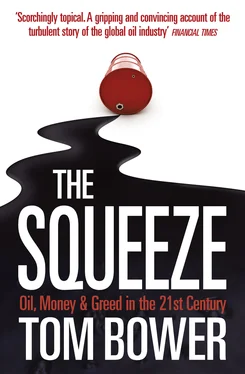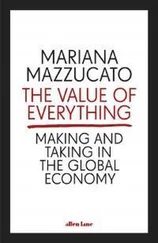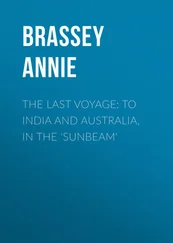1 ...8 9 10 12 13 14 ...32 Exxon, as the industry leader, proudly avoided technical disasters. Since the days of John D. Rockefeller, the nineteenth-century founder of Exxon’s forerunner Standard Oil, the corporation had standardised the rigorous management of costs and processes to prevent financial or technical errors. Like God, the system and the company were infallible. Relying on a culture developed since Standard Oil’s creation in 1870, Exxon was built on tested foundations. By comparison, BP in 2004 was a conglomerate including former Standard Oil companies – Sohio, Arco and Amoco – still struggling to replicate Exxon’s excellence and standardisation. While Raymond concealed uncomfortable truths by cultivating a mystique and keeping outsiders at a distance, Browne was constantly selling himself and his improvised company. Nevertheless, both men could justifiably claim considerable technical achievements to ameliorate oil shortages; yet their skills were spurned by oil-producing countries.
One manifestation of the mistrust of BP, Exxon and the other major oil companies lay across the Gulf, in Mexico. The country, the world’s sixth largest oil producer, owned vast quantities of unexplored oil beneath its coastal waters. To Browne’s frustration, Mexico’s national constitution forbade the participation of foreign companies in its oil industry, and 1938 nationalisation laws had expelled American oil corporations, damaging Mexico itself. Pemex, the national oil company, mired in intrigue and patronage, had become notorious for its inefficiency, and as a slush fund for local politicians. Like so many national oil companies, Pemex was expected to provide employment – there were 27 workers on each of its wells, compared to the industry’s average of 10. And those employees, lacking technical skills, relied on services provided by Schlumberger, which posed no challenge to Pemex’s sovereignty.
In 2002 Mexico’s president Vicente Fox sought to change that situation. The facts were alarming. Mexico’s oil production was falling. The reserves in Cantarell, Mexico’s biggest field in shallow water, which accounted for 60 per cent of the country’s production, was declining by 12 to 15 per cent every year. In 2002 the government borrowed and spent $50 billion to pump more oil, but it had spent only $5 billion on exploration in four years, none of which was in deep water. Consequently, Mexico’s proven reserves– the oil that was technically and economically recoverable – had been reduced within three years from 15.1 billion barrels to 11.8 billion. The country had neither the expertise nor the money to undertake deep-sea drilling, and its plight was compounded by its inability to refine sufficient crude for its domestic consumption. Instead, Pemex exported crude oil to the USA and paid mounting prices for the petrol and other refined products imported from America. Natural gas was flared or burnt at Cantarell because Mexico could not afford to collect and pipe it across the Gulf. Within a decade, the country would need to import oil. Fox urged the vested interests to change the 1938 constitution and allow foreign investment, with the condition that any benefits would materialise only after a decade. His exhortations were ignored. Mexico’s political leaders cared even less about their introverted and protectionist neighbour than about their own plight, an attitude which weakened the oil majors and encouraged the ambitions of the Chinese and other consuming nations to make unrealistic offers to Mexico and neighbouring Venezuela, which was even more beleaguered by falling production. For those governments, local politics and world prices were more important than America’s energy needs.
These seemingly disparate events around the Gulf of Mexico became interlocked in the summer of 2005. In August Hurricane Katrina hit the Gulf, passing over Thunder Horse and devastating New Orleans. 220-mph winds destroyed old rigs, and struck the Mars rig and 11 refineries. One quarter of all America’s oil production and one half of its refining capacity was paralysed. Overnight, Americans understood the vulnerability of oil and gas production in the Gulf. Four weeks later, Hurricane Rita hit the area, damaging deep-water platforms and compounding the difficulties of repairs. Fifteen years of low fuel prices in America were over.
Although BP’s oil traders in Chicago and London rank among the most aggressive, David Rainey was unaware of those who were profiting from these calamities. He had nothing in common with that breed, speculating in the darkness, welcoming the probability of oil shortages.
Andy Hall was cheered by the reports from the Gulf of Mexico. Bad news from oilfields usually satisfied the tall, unshaven trader. Moving from his barren cubicle into the adjoining trading area, he gazed at one of the 15 screens and calculated how much he was up that day. As usual, at 5 p.m. he headed off to practise callisthenics for an hour with a ballet teacher in Norwalk, near the Connecticut coast. The rising price of oil in spring 2005 seemed to confirm Hall’s bet that the world was running out of crude. ‘The trend is your friend,’ he frequently told his staff. ‘Ignore the trade noise. Play it long, because I’ve got ample time to pay.’ Anyone, Hall knew, could buy oil. The skill was to sell at a profit. Ever since John Browne had predicted in November 2004 that oil prices would stick at around $30 a barrel – although they had already reached $50 – and had gone unchallenged by oil’s aristocrats including Lee Raymond, Hall had believed that his massive gamble on soaring oil prices was certain to pay off. Although he was coy about the exact amount, his first stakes were quantified at around $1 billion as oil hovered at about $30, the price, Hall believed, was heading towards $100 and possibly higher.
Lauded for being ‘clever as sin, outgunning everyone in the brains department’, and referred to as ‘God’ by rival traders, Hall immunised himself from daily market sentiment because he was not part of the herd. An Oxford graduate and art connoisseur, soft-spoken and deceptively shy, he abided by the old adage, ‘Oil traders work in a whorehouse, so don’t try to be an angel in this business.’ Originally trained by BP, he understood the mentality of Big Oil’s chiefs, and believed that Lee Raymond, John Browne and the rest were in denial. Some of the smaller oil producers, like the Austrian and Italian national oil companies, had even bought hedges pricing oil at $45 to $55 a barrel, which would lead to huge losses as prices rose. In March 2005, two years after Hall had made his first bet, and oil was at $55 a barrel, Arjun Murti, a Goldman Sachs analyst, predicted that the price would reach $105 ‘in a few years’. This was greeted by widespread scepticism, and Murti was criticised for serving the bank’s interests. Unusually, Henry ‘Hank’ Paulson, Goldman Sachs’s chief executive, was required to defend him. By late spring 2008, as the oil price rose beyond $105, Hall had personally pocketed over $200 million in bonuses, and expected to make even more. Murti was being hailed in some quarters as brilliant.
Hall had traded oil for nearly 30 years. Since he had arrived in Manhattan in 1980, disenchanted by England’s claustrophobic social system, he had metamorphosed into an aggressive trader. ‘I’m basically interested in one thing – business,’ he told his trusted circle. ‘I come in every day to make money.’ Whatever the oil price’s wild fluctuations, and regardless of whether he was earning or losing millions of dollars, Hall coolly controlled his emotions: ‘This is not a zero-sum game because we’ve been doing it for too long to get excited. Emotionally the ups and downs get evened out.’ Over the years Hall had attracted both praise and loathing for perfecting the ‘squeeze’ – causing the oil market to change, and forcing other traders to buy from him at a premium. ‘We’re not here to help others,’ he said. In the old days when trading was carried out on the floor of the stock exchange, and dealers had occasionally yelled, ‘Am I fucking long or fucking short?’, Hall had smiled about the screaming losers who always heaped blame on everyone except themselves.
Читать дальше











![John Bruce - The Lettsomian Lectures on Diseases and Disorders of the Heart and Arteries in Middle and Advanced Life [1900-1901]](/books/749387/john-bruce-the-lettsomian-lectures-on-diseases-and-disorders-of-the-heart-and-arteries-in-middle-and-advanced-life-1900-1901-thumb.webp)
